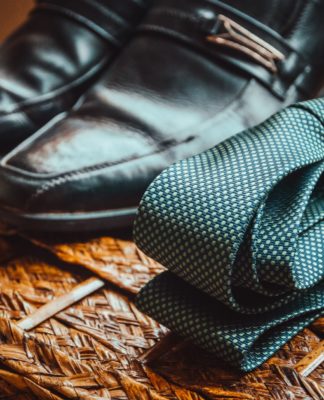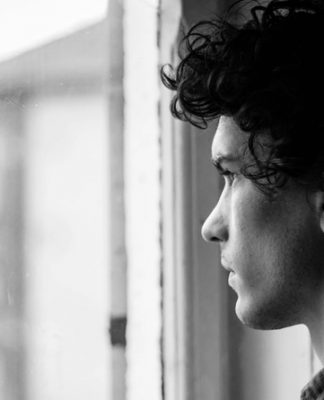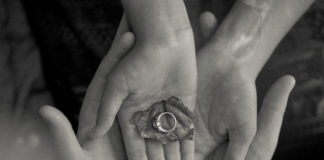Do Women or Men experience the same hurt after a breakup?
Mary Lamia, Ph.D.
Are women more woebegone than men when a romantic involvement ends? As a psychologist I have my own views on the subject. Nevertheless, I decided to consult other pros about the question, which required a visit to a hair salon.
As I entered Frank’s Hair Styles in Larkspur, California the buzz of male voices reverberated off the walls lined with vintage movie posters, guitars, and an abundance of “real boy” décor. Frank and his partner, Stéfan, were engaged in lively conversation with their clients, as a local guy hanging out on the cozy couch occasionally chimed in. Since Frank and Stéfan have been hair stylists for as many years as I’ve been a psychologist, I was certain they’ve heard a plethora of heartbreak stories. So I posed the question regarding who hurts more following a breakup to the group of men. Unanimously, they responded in the direction of gender equality. Paul, whose beautiful curls were being trimmed by Stéfan, offered his story:
“When I was 18-year-old I fell in love with a girl. I was in college at the time. We moved in together and eventually started a business that was doing very well. During that time she cheated on me twice. I let it go the first time. The second time it was with an older guy who left his wife and kids for her. She moved in with him and I was completely heartbroken. Eventually the guy went back with his wife and I took her back. Then she cheated again with a close friend of mine, and left me to be with him. I was obsessed. I had two courses left for my college degree and I couldn’t complete them. We had been perfect for each other and I thought I would never find anyone else like her. I was ‘jammed up’ for ten years over her. I was angry. Thirty years later, following a failed marriage and many relationships, I wanted to reconnect with the original girl and get back what we had felt when we first started out together. I somehow found her and we got together again. But this time it wasn’t there for me anymore. It’s a good thing I never married her. Men really do get heartbroken over being dumped. I’ve lived it.”
Standing in a puddle of Paul’s curls, Stéfan noted that it has always taken him an average of two years to get over heartbreak. Then Frank emphasized that men may not show it, but they sure do feel it. The local on the couch seemed lost in thought, perhaps recalling his own tales of heartache.
Although the sentiment in the salon affirmed that men experience just as much post-breakup pain as women, online articles regarding a recently published study on the subject may lead you to believe that women hurt more than men. So let’s take a closer look at the results of that study.
The translation of research studies by the media often misses or ignores important details that make a big difference in what’s conveyed to the public. In the study regarding post breakup pain, researchers Craig Morris, Chris Reiber, and Emily Roman from Binghamton University and University College explored gender differences in response to the dissolution of a romantic relationship. Although the differences they found were statistically significant, they also clearly state that the effect size—the actual size of the difference—was small. This means there was a lot of variation—a whole lot—within the groups of males and females in their responses to a break up. Thus, contrary to recent publicity, most of the men in the study may not have a heart of stone. Since twice as many women than men answered the online survey, the researchers themselves wondered if perhaps men suffer so severely from post relationship grief that they are unable to consider participating in such a study. The researchers’ evolutionary perspective also led them to speculate that it may be adaptive for men to behave as if a breakup has not affected them because it may enable them to quickly move on to another relationship.
All of this leaves us with a few things to consider regarding why some men (but not so many of them) appear to hurt less and recover more quickly than women following a breakup. Biologically, women and men have the same core emotions, yet the impact of culture may lead them to differ in their behaviors following a break-up. The lead author of the study, Dr. Craig Morris from Binghamton University, answered my inquiry and explained, “…our assumption before even beginning the study (and demonstrated tangentially in this initial paper but very explicitly in forthcoming publications) is that while men feel a breakup just as intensely as a woman, they are enculturated to inadequately process and express those feelings.”
No hearts of stone there. In fact, the influence of culture and life experiences on the way we process and express emotion is especially strong in the predominant emotion activated by a breakup; namely, shame. If you have been rejected, or perceive your ended relationship as a failure, shame is most likely the emotion you will experience. Shame makes us want to hide, and the coping responses to shame help us to do so in a variety of ways. The defensive coping responses to shame include withdrawal, avoidance, attacking oneself, or attacking others, according to Donald Nathanson, author of Shame and Pride: Affects, Sex, and the Birth of the Self. Withdrawal responses hide shame from others, such as sleeping all day, watching every episode of a mini-series, or refusing to answer any calls. Avoidance responses hide your shame from yourself and often involve self-protection through stimulating activities, such as abusing alcohol or substances or engaging in “retail therapy.” An attack-self response to shame can be psychologically or physically self-injurious, and may take the form of self-blame, cutting, or even suicidalbehavior. Lastly, an attack-other response hides shame beneath the guise of anger and blaming others. Paul’s various breakups with the “girl of his dreams” seemed to leave him in a perpetual state of an attack-other response to shame.
“Anger that is expressed in response to shame due to a breakup is often not perceived as coming from emotional pain, and men are more likely to express it,” according to Vernon Kelly, M.D., author of The Art of Intimacy and the Hidden Challenge of Shame. In my conversation with him he pointedly reminded me about the gory statistics on crimes of passion that are heavily weighted toward male perpetrators. “More often in men, shame is converted to anger, but woman are more likely to cry or blame themselves,” Kelly remarked. “Culturally, expressing vulnerability is ultimately an advantage because those who are vulnerable, often expressing it as sadness, are more likely to be comforted in their shame.”
Emphatically gesturing toward the ceiling of the salon, Frank the hair stylist had asked rhetorically, “What do women do when their heart is broken?” Answering his own question he proclaimed, “They talk about it! But men are more likely to keep it to themselves and suffer.”
Undeniably, an antidote to the harsh effects of shame can be found in being open to sharing one’s feelings with others—human connection. However, all of this just leads to another question: Are men more ashamed of being ashamed than women tend to be? If so, then men would be more inclined to hide the pain of their shame about a break-up, including from researchers. Perhaps hair stylists know for sure.
For information regarding my books, please see my website: http://www.marylamia.com


 As clinical psychologist and psychoanalyst I work with adults, adolescents, and preteens in my Kentfield, California private practice. I am also a professor at the Wright Institute in Berkeley, California. Teaching the public about the psychology of human behavior has been something I've done for over 35 years. For nearly a decade I hosted a weekly call-in talk show, KidTalk with Dr. Mary, on Radio Disney stations, and have provided opinions in many media interviews and discussions.
My books include:
As clinical psychologist and psychoanalyst I work with adults, adolescents, and preteens in my Kentfield, California private practice. I am also a professor at the Wright Institute in Berkeley, California. Teaching the public about the psychology of human behavior has been something I've done for over 35 years. For nearly a decade I hosted a weekly call-in talk show, KidTalk with Dr. Mary, on Radio Disney stations, and have provided opinions in many media interviews and discussions.
My books include: 




















